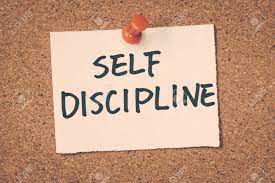What are the self-discipline challenges facing students? Even when we know the benefits of self-discipline and how it helps to accomplish goals and bring peace and happiness yet for some reason, some people still find it very hard to break in and be disciplined as they want to.
Self-discipline is the bridge between goals defined and goals accomplished. As students, it is easy to write those goals and pin down the note close to bed yet accomplishing them takes beyond comprehension and retention. The need to commit and stretch oneself to reach them is the most practicable decision.
If you have self-discipline challenges, the solution starts with acknowledgment, the cause, and a way out. In this article, we want to look at some common issues that affect students’ self-discipline and the way out of them.
What is Self-Discipline?
Here are some profound definitions of self-disciple that will inspire you to stick to the act.
Self-discipline is the ability to control yourself and to make yourself work hard or behave in a particular way without needing anyone else to tell you what to do – Collins Dictionary
Self-discipline means the ability to carry out one’s decisions and plans, despite inconveniences, hardships, or obstacles- Success Consciousness
It is the ability to push yourself forward, stay motivated, and take action, regardless of how you’re feeling, physically or emotionally – Mind Tools
Self-discipline is the power to manage a person’s thoughts, emotions, or behavior in the face of temptation to achieve a specific goal – study.com
7 Self-Discipline Challenges Students and Way Out
1. Distractions
Anything that prevents you from concentrating on something else is called a distraction. Distractions are everywhere. Anything can be a distraction at a particular time you need to complete an important task.
If you are easily distracted or find it difficult to complete tasks under distracting circumstances, then you need to be determined and elimate these distractions before you proceed with the task at hand. For instance, switch off your phone, turn off the TV set, silence notifications, and create privacy. In situations, you don’t have control over, such as in the dorm, you need to practice resistance over and over especially when you can’t leave the environment.
2. Procrastination
One of the most prevalent self-discipline challenges for students is the tendency to put off tasks until the last minute. Procrastinating assignments, study plans, and other personal commitments can lead to poor time management, increased stress, and reduced productivity. The best and only way out of this poor habit is to take action to do what has to be done when it needs to be done. To be disciplined in procrastination starts and ends with taking immediate action.
3. Fatigue and Stress
School life can be demanding combined with starting and maintaining an online business or keeping a part-time job. The responsibilities that come with all of these activities can overwhelm you and cause stress which negatively impacts your self-discipline.
When stressed, it is important to rest or ease it off but it is advisable to create a schedule and apportion time for major daily responsibilities and tasks. If you want to overcome being stressed out, master time management and learn to prioritize your activities always. Some things can wait, while others can’t. So you should know how to balance and keep to time.
4. Lack of Sense of Purpose
Self-discipline challenges sometimes are caused by personal issues such as low self-esteem and a lack of purpose. When someone lacks focus or has poor self knowledge, it becomes difficult to maintain self-discipline (it is easier to seep into one or more self-discipline challenges). To find the strength to start and accomplish goals, you need to know your why– have a sense of purpose and keep your life interests alive and burning.
5. Lack of Accountability
Another area of self-discipline challenges is the lack of accountability. Some person works smarter and better under supervision or control. While others do not need external supervision or control. If you fall into the first category as a student, you may be plagued with self-discipline challenges. Such that you may need external accountability i.e. a teacher or guardian to monitor your progress.
To get out of this, the best way is to get an accountability partner for the time being while you work on yourself to become accountable without any external agent.
6. Unrealistic Goals
The idea of setting goals is to achieve them. Meanwhile setting unrealistic goals is the same as not setting goals at all. To achieve goals, you need to consider SMART (Specific, Measurable, Achievable, Realistic, and Timely) goals. You can learn how to write smart goals here.
To be disciplined, break goals into milestones. Make it about quality and not quantity. For instance, if you know you can’t study three chapters, don’t make it a goal stay at 1- 2 chapters as a goal instead.
7. Lack of Structure
Some students may struggle with self-discipline due to a lack of structure in their daily routines. Without a clear schedule or plan, it becomes harder to establish and maintain study habits and other commitments. Therefore, having a clear schedule plan, initiating breaks, and time for personal relaxation is important.
Conclusion
Dealing with self-discipline challenges as I stated earlier begins with acknowledgment, the cause, then the way out. To get better, practice self-discipline like any other skill you want to develop. Meanwhile, you should be able to sacrifice your comfort to achieve the long-term success it brings.

Leave a Reply